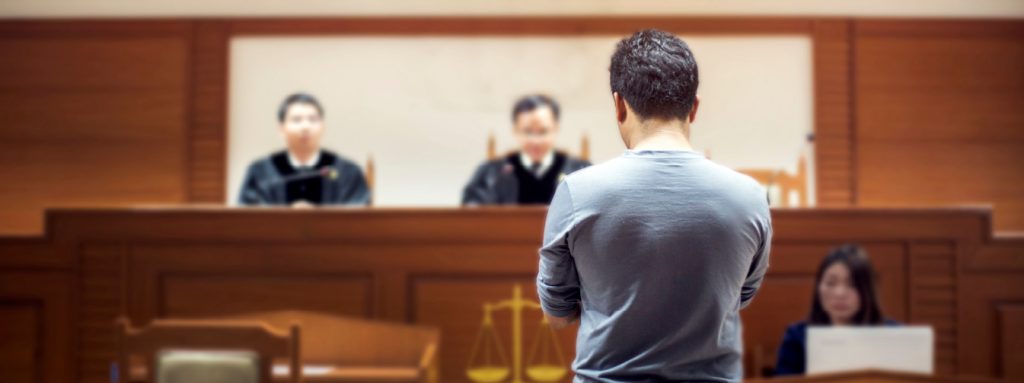
NEWS
Penalties For Making A False Statement To NSW Police
Honesty and trust are vital in our society, especially when interacting with law enforcement. But what happens when someone makes a false statement to the NSW police? Is lying to the police a crime?
In this article, we will explore the serious consequences of providing false information to the police. Let’s unravel the legal complexities and understand the penalties associated with making false statements to the NSW police. Join us as we shed light on this important issue and discover the impact of dishonesty in law enforcement interactions.
Different Types Of False Statements
Lying To Get Someone In Trouble
This type of false statement involves intentionally providing false information or making misleading statements to the police with the purpose of incriminating or causing harm to another individual. Whether it is falsely accusing someone of a crime they did not commit or fabricating evidence against them, this deceptive act undermines the integrity of the justice system.
Making False Police Reports
Filing a false police report entails providing misleading or fictitious information to law enforcement officials, leading them to initiate investigations based on false premises. This includes reporting crimes that did not occur or falsely claiming to be a victim. Making false reports not only wastes valuable police resources but also obstructs the investigation of genuine crimes.
Providing False Descriptions
Deliberately providing inaccurate descriptions of suspects or events to mislead the police is another form of a false statement. This can include intentionally distorting physical characteristics, clothing, or details of an incident. By providing false descrptions, individuals attempt to divert attention away from the truth, hinder investigations, or create confusion.
False Witness Testimony
Giving a false testimoney or providing fabricated evidence under oath during legal proceedings, including criminal trials or police interviews, is a serious offence. False witness testimony undermines the integrity of the judical system and can significantly impact the outcome of a case. By intentionally misleading the court or police through false testimony, individuals not only obstruct justice but also risk facing legal consequences themselves.

The Legal Consequences Of Lying To The Police
Monetary Fines
Monetary fines are a common penalty for those who are found guilty of intentionally misleading law enforcement. The amount of the fine varies depending on the severity of the false statement and its impact on the investigation. Fines can range from several hundred to several thousand dollars, as a consequence of your actions. So, before contemplating the risky path of lying to the police, consider the potential financial burden that could accompany your deceit.
Imprisonment
In more serious cases, imprisonment becomes the consequence for those who knowingly make false statements to the police. If the false statement obstructs justice, or causes harm, the offender may find themselves facing a prison statement. The duration of imprisonment can vary ranging from months to years, also depending on the severity of the offense.
Criminal Record
Another consequence of making false statements to the police is the creation of a criminal record. This record can follow you for years, potentially affecting employment prospects, educational opportunities, and even travel plans. A criminal record is not easily erased and can cast a shadow over various aspects of your life.
Other Consequences
Beyond fines, imprisonment, and a criminal record, there are additional penalties that may be imposed for making false statments to the police. These can include community service, where you are required to contribute to a certain number of hours towards a specific cause. Alternatively, a probation may be ordered, requiring you to comply with specific conditions and regularly report to a probation officer. In some cases, mandatory classes or programs related to honesty, accountability, or ethics may be mandated.

Possible Defences & Rectification
If you find yourself accused of making a false statement to the polce, it is essential to understand the possible defences that may be available to you. While each case is unique and dependent on specific circumstances, some common defences include lack of intent to deceive, honest mistake, or coercion.
Lack Of Intent
A defence that suggests that false statement was made unintentionally, without any purpose of intention to mislead or deceive.
Honest Mistake
A defence that asserts the false statement was made genuinely, due to a misunderstanding or error, without any intention to provide false information.
Coercion
A defence that claims the false statement was made under duress or threat, where the individual felt compelled to provide inaccurate information against their will.
Seeking legal advice from an experienced professional can help assess your situation and determine the best course of action. Understanding the potential defences can provide clarity and guidance when facing accusations of making false statements.
Realising that you have made a false statement to the police can be a daunting realisation. However, it is essential to take prompt action to rectify the situation. Honesty and cooperation are crucial during this process. Contacting legal counsel to seek guidance on the appropriate steps to take is highly recommended. Cooperating fully with law enforcement authorities, admitting the mistake, and providing a corrected statement are important measures to rectify the false statement and mitigate the potential consequences.
Uphold Honesty In Interactions With Law Enforcement
In the realm of legal repercussions, the penalties for making false statements to NSw police should not be underestimated. Whether its providing inaccurate information to get someone in trouble or misleading the police, the consequences can be severe. Fines and imprisonment loom as potential outcomes, reflecting the gravity of such offences.
It is important to recognise the importance of truthfulness in our interactions with law enforcement, as honesty is the bedrock of a just and functioning society. When faced with situations that tempt dishonesty, let us remember the profound impact that truthful and transparent communication can have. By upholding the virtue of truthfulness, we contribute to a safer and more harmonious community for all.

